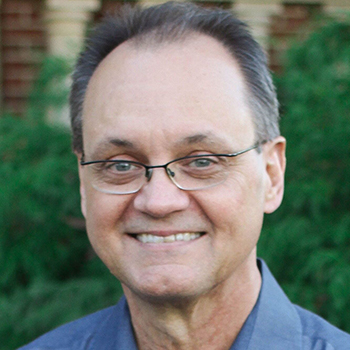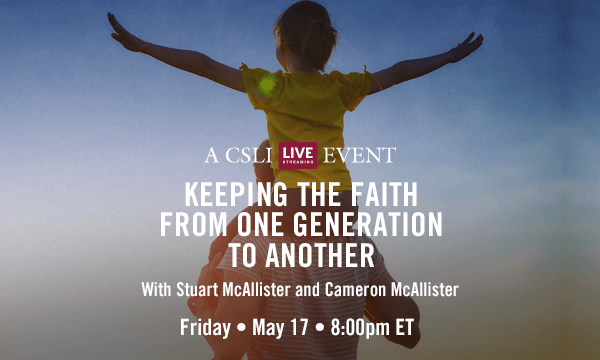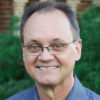Back to series



Blazing the North-South Trail
Click here to open a Print - Friendly PDF
If the world has not approached its end, it has reached a major watershed . . . equal in history to the turn from the Middle Ages to the Renaissance. It will demand from us a spiritual blaze. —Alexander Solzhenitsyn1
To hear some people talk you would think that individuals in our culture have given up on the possibility of God and spiritual realities. Actually the exact opposite is the case. People in our day are as much or more interested in the “spiritual” or the “transcendent” as they were at the turn of the twentieth century. Pollster George Gallup, Jr., quotes church historian Martin Marty as saying “Spirituality is back, almost with a vengeance.”2 Visit your local bookstore—if your community is lucky enough to still have one—and take a look at the religion and metaphysics sections. You may be shocked at the number of books that deal with transcendent themes. But when I warn you to get ready, my caution is based on more than sheer quantity. You will find a myriad of volumes ranging from UFO abduction to palm reading to alternative health practices to the spirituality of gardening. This same interest is demonstrated by movies such as Inception, Avatar, and The Dark Knight Trilogy—all of which deal with transcendent themes. Television programming will not be outdone either, with such shows as Fringe or Lost.
Many secularist prophets of the last century predicted that the urge to connect with something or someone beyond the physical world would pass off the scene as modern man came of age. This has not been the case, at least not in North America, as polls continue to show a high level of religious belief.3 Try as we may to get rid of this urge, it seems like the proverbial beach ball that someone tries to hold underwater. The more one tries to shove it down or hide it, the more it pops up in other places. This seems to be what is happening to us regarding issues of spirituality early in the twenty-first century. Actually this surge of interest in spirituality is perfectly in keeping with what we should expect of human beings who are “made in the image of God” (Gen. 1:26–28). The Bible is clear that God never ceases to make Himself known to us, His image bearers (Ps. 19:1–2; Rom. 1:20–21).
The renewed interest in spirituality is certainly encouraging. It might lead us to believe that we are on the brink of a renewal of authentic Christian faith. However,the revival of interest in spirituality might not result in any real change. My own reading and research in the area of spiritual formation has convinced me that in order for us to see some of those who are hungering for spiritual reality come to true faith in Christ, we must understand the shape the present search is taking.

In much of the new material on spirituality, the word transcendence continues to surface. Used in its traditional sense, this word refers to God’s separateness from the rest of creation. The new spiritualities imply something quite different, however. Alan Roxburgh puts it correctly when he comments on the present use of the concept, “Transcendence is often used as a synonym for mystical experiences of direct connection with what is perceived to be the true reality behind ordinary life.”4
This connection between the individual and something beyond is primarily experiential, nonhierarchical, and based on feeling rather than reason. Reason is seen as one of the main contributors to the sense of separation or dualism that is so much a part of modern experience. In many people’s minds, the modern mechanistic world has produced a sense of alienation from life by its fixation on measuring, quantifying, and explaining everything by the use of reason. Therefore, in many people’s minds Christianity has contributed to the sense of separation, especially when it has used reason to support its claims.
Offering a fitting diagnosis of our times, in The Pilgrim’s Regress C.S. Lewis examines the intellectual history of Europe. He tells of a straight road representing orthodox Christianity that runs through the center of a country. To the north of this road is a territory characterized by rationalism, reason, dogmatics, and systematization. The southern territory has characteristics such as openness, feeling, mysticism, experientialism, and naturalism. Lewis describes the age in which he lived as “predominantly Northern.”5 We live in a different day—as the old saying goes, “the times they are a changin’.” We are living in a time when civilization is shifting southward. This southward move is affecting the way our culture talks about, pursues, and practices spirituality.
So how does having this diagnosis affect how we relate to twenty-first-century seekers of spirituality? I think our model should be Paul at Mars Hill (Acts 17:16–31). Paul meets people where they are and applies the healing balm of the gospel to those who are alienated from the living God. He both affirms and challenges his listeners at Athens. To use Lewis’s analogy, orthodox Christianity cuts through the center of the northern and the southern territory. Biblical spirituality is holistic in the truest sense. It encompasses reason and feeling, boundaries and openness, systemization and mystery. It is truly integrative, whereas our culture often swaps one form of dualism for another as it overreacts to modernity’s tendency to deify reason and science by abandoning reason for mystery, feeling, and experience.
In this case the supposed cure is as bad as or worse than the disease. Perhaps God’s message to us as His people is that if we want to have the maximum impact on a culture, as disciples of Christ we need to proclaim and live a more experiential Christianity that integrates the mind (orthodoxy), the heart (orthopathy), and the hands (orthopraxy). All of life from everyday experience to the extraordinary must become the place where we meet God and are transformed. This is the kind of God-centered, earthly life (Rom. 12:1–2) that brings glory to God and is used by the Holy Spirit to illustrate the good news about Jesus Christ. An explanation of what God has done in Christ coupled with an experiential spirituality is the best remedy for both those living down south and those residing in the northern country. Ajith Fernando says it well,
So the current interest in spirituality is a challenge to the church to get its act together. We have the answer that the world is looking for. But have we ourselves experienced it? Do we know the glory of intimacy with the loving and holy God who is supreme above creation? Has this relationship transformed us into morally pure people? If we can answer these questions in the affirmative, we will truly be light to the darkness of the world in this postmodern era.6
| Notes 1. Ronald Berman, ed., “A World Split Apart,” in Solzhenitsyn at Harvard: The Address, Twelve Early Responses, and Six Later Reflections, (Washington, DC: Ethics and Public Policy Center of Georgetown University, 1980), 18–20. 2. George Gallup, Jr., and Timothy Jones, The Next American Spirituality: Finding God in the Twenty-first Century (Colorado Springs: David C. Cook, 2000), 14. 3. See compilation of Gallup polls on religion, https://www.gallup.com/poll/1690/religion.aspx. 4. Alan Roxburgh, Reaching a New Generation: Strategies for Tomorrow’s Church (Vancouver, BC: Regent College Publishing, 1998), 110. 5. C. S. Lewis, “Preface,” The Pilgrim’s Regress (1943; repr. Grand Rapids, Eerdmans Pocket), 12. 6. Ajith Fernando, “The Uniqueness of Jesus Christ,” in Telling the Truth: Evangelizing Postmoderns, ed. D. A. Carson (Grand Rapids: Zondervan, 2002), 136. |
|||

Bill Smith
CSLI City Director, AtlantaBill Smith is the Director of C.S. Lewis Institute Atlanta. His desire is for others to grasp God’s perspective and experience God’s presence throughout all of life. Bill teaches and facilitates discussions in a variety of contexts including schools, churches, businesses, conference/retreat centers, coffeehouses, bookstores, and homes. His interest in the life and writings of C.S. Lewis has resulted in a book titled Conversations on the Question of God with C.S. Lewis and Sigmund Freud. Bill holds a B.S. in Biblical Studies from Toccoa Falls College and a M.Div. from Trinity Evangelical Divinity School.

 COPYRIGHT: This publication is published by C.S. Lewis Institute; 8001 Braddock Road, Suite 301; Springfield, VA 22151. Portions of the publication may be reproduced for noncommercial, local church or ministry use without prior permission. Electronic copies of the PDF files may be duplicated and transmitted via e-mail for personal and church use. Articles may not be modified without prior written permission of the Institute. For questions, contact the Institute: 703.914.5602 or email us.
COPYRIGHT: This publication is published by C.S. Lewis Institute; 8001 Braddock Road, Suite 301; Springfield, VA 22151. Portions of the publication may be reproduced for noncommercial, local church or ministry use without prior permission. Electronic copies of the PDF files may be duplicated and transmitted via e-mail for personal and church use. Articles may not be modified without prior written permission of the Institute. For questions, contact the Institute: 703.914.5602 or email us.
-
Recent Podcasts
A Welcome Change in Apologetics
by Randy Newman, Aimee Riegert on April 19, 2024We’re burdened for our friends who don’t know...Read More
-
Questions That Matter Podcast – Samuel James and Digital Liturgies
by Samuel James, Randy Newman on April 19, 2024
-
The Side B Stories – Dr. James Tour’s story
by Jana Harmon, James Tour on April 12, 2024
-
Recent Publications
Isn’t Morality Relative?
by Christopher L. Reese on April 1, 2024It is widely accepted in the Western world...Read More
-
Do Muslims and Christians Worship the Same God?
by Andy Bannister on March 1, 2024
-
Artificial Intelligence and Its Impacts on Humanity
by John Lennox on February 13, 2024
0
All Booked
0.00
All Booked
0.00
All Booked
22140
GLOBAL EVENT: Keeping the Faith From One Generation To Another with Stuart McAllister and Cameron McAllister, 8:00PM ET
https://www.cslewisinstitute.org/?event=global-event-keeping-the-faith-from-one-generation-to-another-with-stuart-mcallister-and-cameron-mcallister-800pm-et&event_date=2024-05-17®=1
https://www.paypal.com/cgi-bin/webscr
2024-05-17

Next coming event
Days
Hours
Minutes
Seconds
GLOBAL EVENT: Keeping the Faith From One Generation To Another with Stuart McAllister and Cameron McAllister, 8:00PM ET
On May 17, 2024 at 8:00 pmSpeakers

Bill Smith
CSLI City Director, Atlanta
Team Members

Bill Smith
CSLI City Director, AtlantaBill Smith is the Director of C.S. Lewis Institute Atlanta. His desire is for others to grasp God’s perspective and experience God’s presence throughout all of life. Bill teaches and facilitates discussions in a variety of contexts including schools, churches, businesses, conference/retreat centers, coffeehouses, bookstores, and homes. His interest in the life and writings of C.S. Lewis has resulted in a book titled Conversations on the Question of God with C.S. Lewis and Sigmund Freud. Bill holds a B.S. in Biblical Studies from Toccoa Falls College and a M.Div. from Trinity Evangelical Divinity School.





